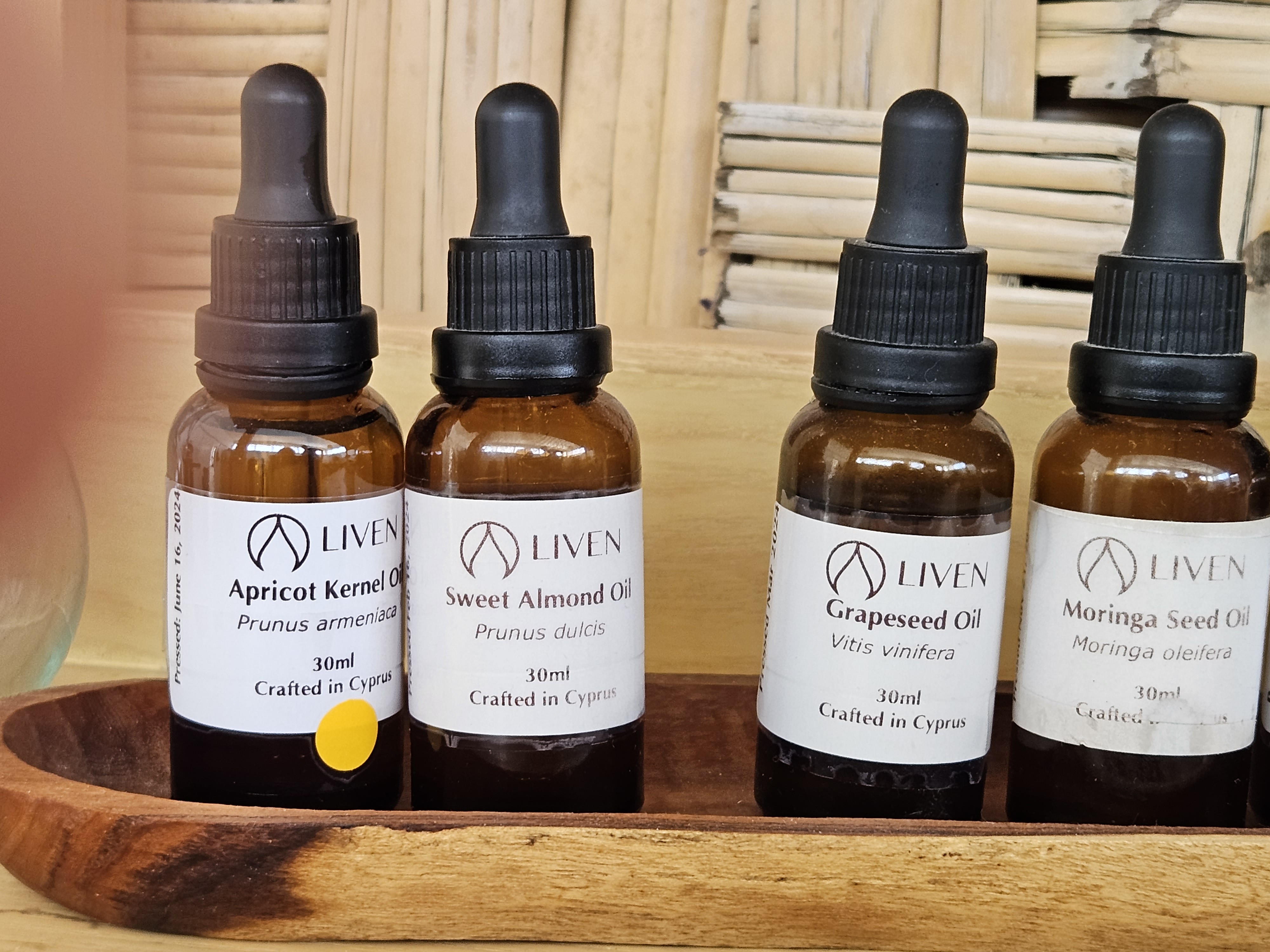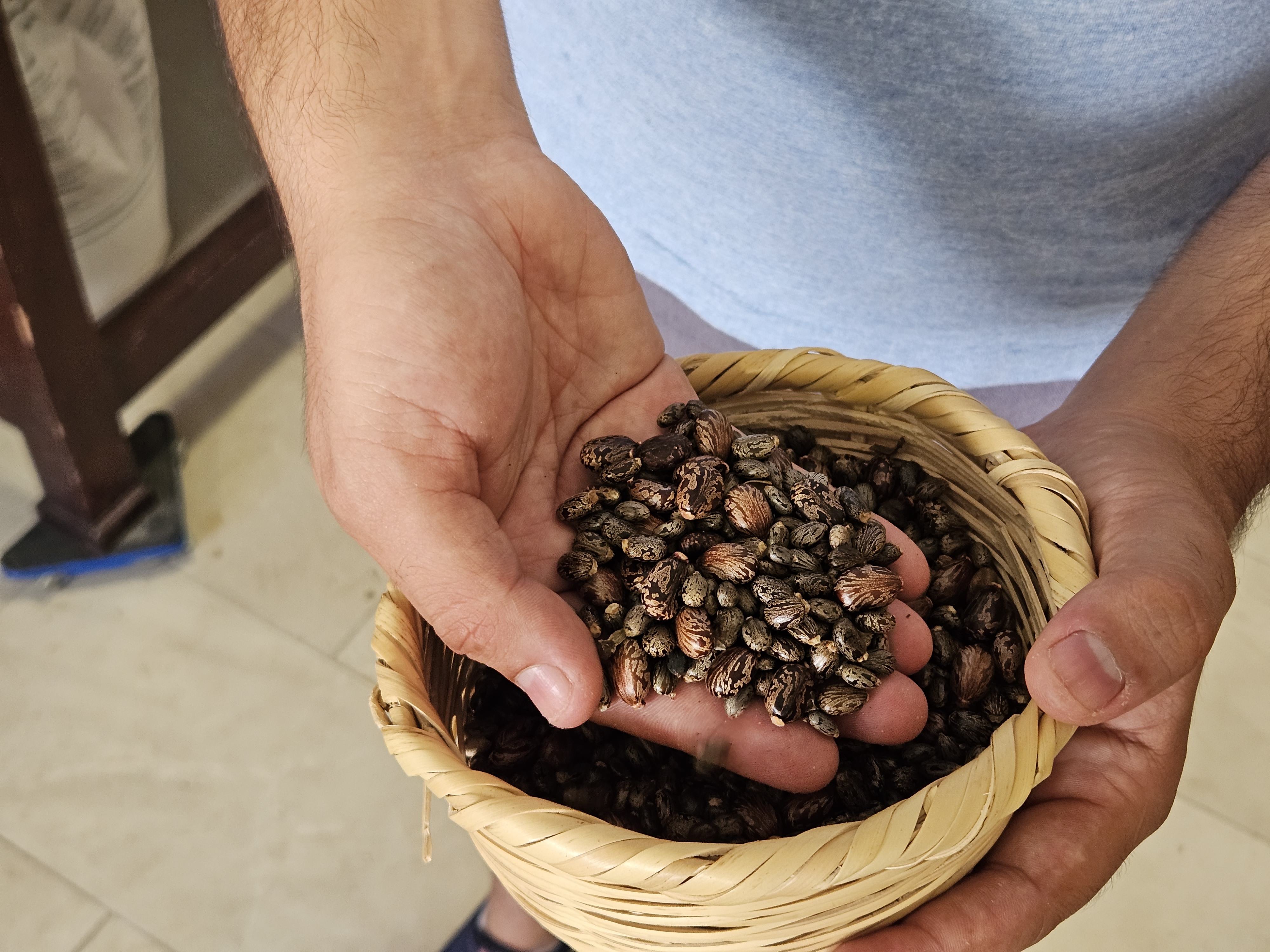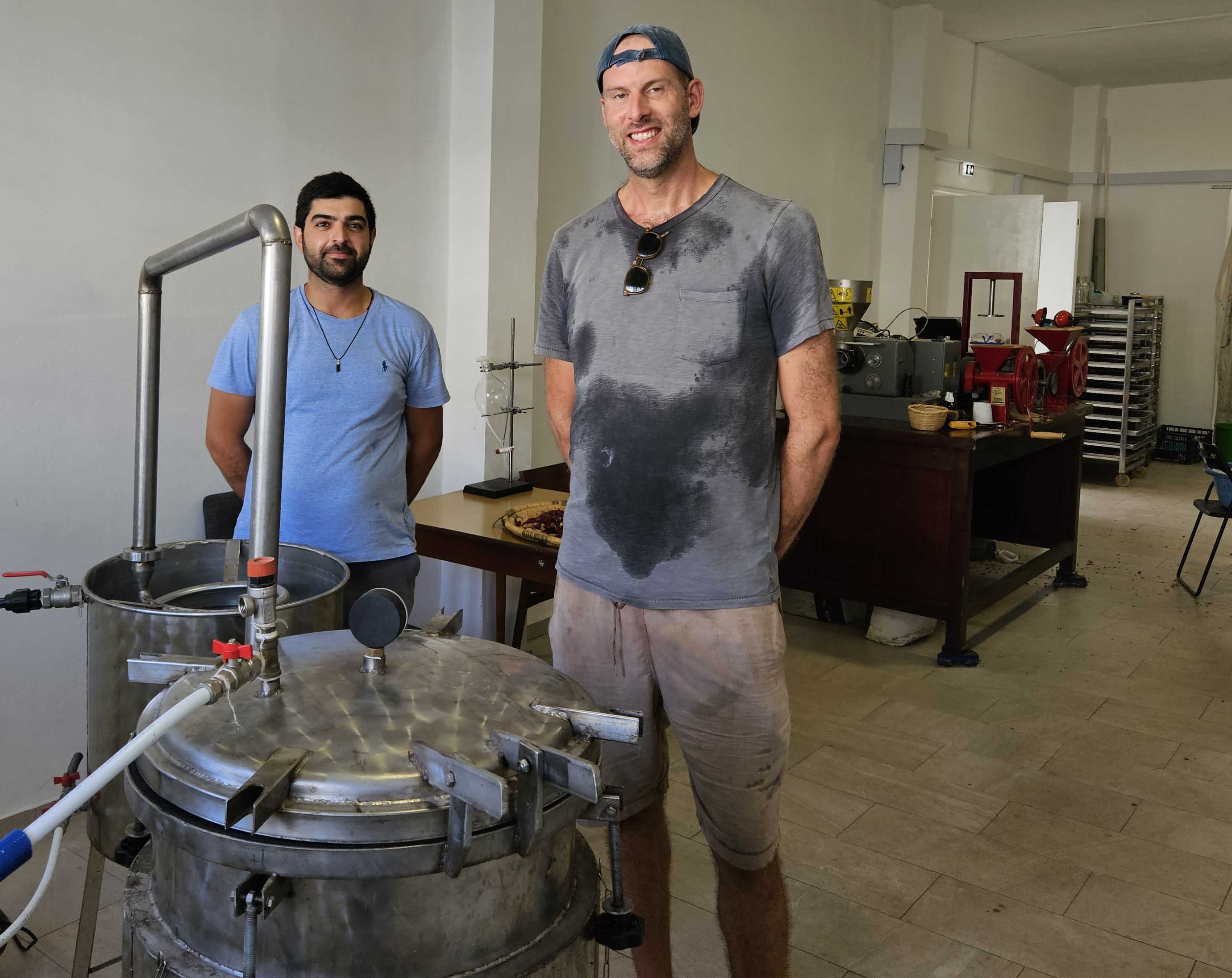But more substantive, locally based projects would have a positive long-term effect on the economy
“I think that the mismatch between me and Cyprus,” says Jared Willis, “was that Cyprus doesn’t want boot-strappers. Cyprus doesn’t want people coming here with an idea, and saying ‘Let me test out the idea, step by step’.
“They want people coming in with a lot of money, already established, and – you know, feeding the ecosystem. Feeding the lawyers, giving the banks what they need. Coming in like that.”
Willis, an outspoken 44-year-old American who describes himself as “very stubborn and independently minded”, is a partner in a company called Liven (livencyprus.com), currently operating out of two-room premises in the centre of Larnaca.
Liven’s production area contains two machines: a distillation unit and a cold-press machine (or expeller), used to make essential oils and cold-pressed oils, respectively. All around are baskets and containers with their raw materials, ranging from apricot kernels and grape seeds to dried herbs and chili peppers.
Over in the ‘shop’ area are bottles of oils tagged with assorted fragrant names: cypress, pine, rosemary, myrtle, kaffir lime, petitgrain, and so on.
The company operates as an artisanal home-based business (“like someone making honey”), selling direct to consumers. But Willis – who worked as a consultant in the Arab world for 15 years – wants it to grow, so it can sell to hotels (which could use its oils in their spa facilities) and obtain ISO certification to export globally. Which is where things get tricky.
The story of Liven isn’t so much a case study in Cyprus placing bureaucratic obstacles on entrepreneurs. Government departments have been generally helpful, within the constraints of the system.
Instead, it’s a case study in something more insidious: the way the system in Cyprus tends to favour glamorous, big-money projects when it comes to foreign investment – the kind that come with deep pockets and established brands, and will ‘feed the ecosystem’ of banks and lawyers – instead of more substantive, locally based projects that’ll have a long-term effect on the economy.
The agriculture sector seems especially neglected. Willis admits he hasn’t tried to contact Invest Cyprus, our flagship department and one-stop shop for investors – but notes that there doesn’t even seem to be an ‘Agriculture’ page on their website.
Instead, you have ‘Cyprus as a Tech Hub’ and ‘Cyprus as a Financial Centre’ – plus a page called ‘Investment Opportunities’, which takes you to an array of projects for hotel resorts and a “luxury office building”.

“When we buy waste from wineries or jam factories, the money we’re putting into people’s hands in the agricultural sector is much more valuable than just showing a €200,000 deposit,” argues Willis.
That’s a reference to the designation known as a ‘foreign interest company’ – which is what Liven may have to become, in order to thrive.
“The government’s threshold for a foreign national to start a business in Cyprus and sponsor their own visa is €200,000,” he explains. “I think, if I didn’t want to have majority ownership in the company – or if we didn’t want to bring our partner from Sri Lanka on a visa – perhaps there are other ways to do it.
“But in order to get visa privileges, and have foreign ownership of the company, you need to have €200,000 of start-up capital.” Willis shrugs eloquently: “Which, y’know… I was in Kuwait, and the start-up capital was $70,000. I was in Oman, the start-up capital was around $2,000.”
That threshold, designed for wealthy foreigners, makes it already hard to establish a start-up like Liven – though, as Willis says, a complicating factor in this case is ‘Sam’ from Sri Lanka, an expert distiller with 10 years’ experience whom they’d never be able to obtain a visa for, as a local company.
It’s not just the money, though (which Willis believes he could raise, with his connections). It’s also the rotten ecosystem it creates – and, more broadly, the national sense of self-loathing that lurks behind it.
On the first point he mentions, for instance, one of the lawyers he’s had dealings with on the island. “When I said ‘I would like to register as a foreign interest company’, she said: ‘You don’t have to register. Just buy one of my client’s shell companies for €15,000, then you’ll inherit the foreign interest company and just change the shareholders’.”
That’s sadly typical, Liven having been plagued by bad advice. Whether because the rules are unclear, or because the scent of money brings out the vultures, foreign investment seems beset by bottom-feeders looking for loopholes and dodgy deals.
Still, that’s probably true of all countries. The real pity in Cyprus is that we could do much better – if we only had more faith in ourselves as a country.
Talking to Cypriots about Liven, says Willis, “I kept hearing the same line over and over, which is ‘Cyprus doesn’t have enough raw materials’”. Yet in fact Cyprus was known as an exporter of precisely the fragrances and botanicals he produces, up until the invasion.
There are plenty of raw materials. Liven do business with wineries (who throw away tons of grape seeds), with fruit and vegetable companies, with ordinary farmers, with producers of jams and sweets.

They also add value to the sector, making use of what would otherwise be wasted. Not to mention – speaking of what might’ve been wasted – that Willis’ colleagues include Andreas Marcou, a 29-year-old Cypriot biologist and plant scientist who was drawn back to the island from the Netherlands by the opportunity to work in a proper agricultural start-up.
Yet our government remains dazzled by tall buildings and tech companies, relegating agriculture to the tourism sector. “People should be buying things made in the villages because it replaces something from Ikea,” says Willis. “Not as a souvenir!”
“Cyprus undervalues itself,” he goes on. “It thinks it doesn’t have raw materials, it doesn’t have opportunities here to earn money in a responsible way, and thinks ‘We just have to find foreigners with money who want to sit here and buy a nice house, or have a visa privilege in Europe’…
“It doesn’t understand the value of which foreigners can bring something to the country, other than just a deposit of money. And is that really helping? I mean, having all these people here with shady money – is that really what you want in your country?”
Jared Willis is actually quite reasonable, despite his outspokenness. He understands the need to protect the economy, and that our government can’t just open the gates to every “backpacker” with a business plan.
He also – despite the talk of a ‘mismatch’ – remains committed to Cyprus, and says he’ll do what it takes to grow his company. He just wishes the system were a bit more discerning, less distracted by the lure of big bucks, more attentive to new ideas and how they might benefit the island.
“Nobody owes me anything,” he declares, sounding very American. “Cyprus didn’t invite me here, I chose to come here”. All he’s trying to show, despite the challenges and the sense of being somewhat neglected as a foreign investor, “is that you can still run a business the way it’s supposed to be run, and make a profit.
“The government doesn’t have to subsidise. But they can at least stop making it more difficult.”







Click here to change your cookie preferences